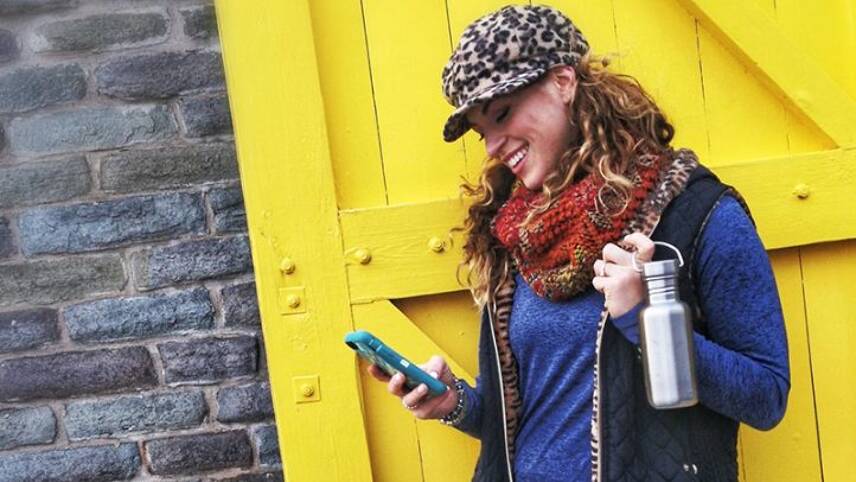Register for free and continue reading
Join our growing army of changemakers and get unlimited access to our premium content

Refill was initially launched in Bristol by City to Sea founder Natalie Fee
That’s according to the community interest company’s head of campaigns and marketing Jo Morley, who gave edie an exclusive update on the campaign’s progress ahead of the two-year anniversary of its launch.
Founded in June 2017 after City to Sea’s own research found that the average Brit uses 150 plastic water bottles annually, the initiative aims to discourage the general public from buying single-use plastic water bottles by making free tap water refill facilities available in “on-the-go” scenarios. This approach takes two forms – the installation of new water fountains and encouraging businesses to place Refill stickers in their branch windows to inform the public that they offer free tap water.
In total, there are now more than 17,000 Refill “stations” across the UK, Morley told edie – all of which are mapped on the campaign’s downloadable iPhone and Android app.
After early success among the independent café sector in 2017, she said, 2018 marked an “explosion” of interest among high street chains including Costa, Starbucks, Leon and, most recently, Pret A Manger. Indeed, the past 12 months have seen the scheme launch in its first department store, John Lewis; inspire the creation of a similar initiative by Landsec and receive its first supermarket supporter Asda.
The initiative’s next key focus area will be the transport sector, following a partnership with National Rail which has facilitated the installation of new fountains at Bristol Temple Meads, Reading and London Paddington since last summer, Morley said.
“We’ve made good headway in tackling the high street and I think you’ll see the Refill sticker now in most places, but we know from our own research that one of the biggest barriers to people refilling is a lack of facilities when they’re travelling,” Morley explained.
“Historically, it’s been almost impossible to refill when you’re travelling, so we are always exploring how best to work with partners like Heathrow Airport and Network Rail to both make drinking water more accessible and create a new norm where people understand the importance of changing behaviours.
“Once one company signs up, everyone else in that sector begins questioning why they aren’t signed up. We’ve been fairly lucky in that aspect with the high street and hope this can be replicated with a focus on transport.”
The communication challenge
As with any behaviour change scheme, a challenge will always be engaging members of the public, particularly when they are likely to be in a hurry to catch their train, plane, bus or coach.
City to Sea, therefore, encourages the transport firms it works with to install onsite signposts to highlight the location and availability of its fountains, and to make staff aware of them so they can direct visitors.
But Morley explained that the challenge now was more about getting the public to develop a lasting habit of avoiding single-use bottles than getting businesses to become Refill stations.
“We are facilitating reuse and proving a solution in the interim by signposting people to where they can refill, but, for us, we want to change cultures,” she said.
In order to spur this cultural shift, City to Sea will unveil a string of advertising displays outside of its stations for the first time this summer, in a bid to engage those who may have missed the in-store stickers. These will be complemented by the organisation’s first Refill roadshow, which will see team members visiting Manchester, Birmingham and Canary Wharf.
It will also use its Refill Day event on 19 June to host entirely user-generated content across its social media channels, showing pictures and videos of members of the public using refillable bottles, while bolstering this action through a series of longer-lasting collaborations with influencers. The tagline for this content aims to engage consumers through a rhetorical question – “have you got the bottle to end plastic pollution?”.
Did you spot the Refill team at Edinburgh airport this week? We’re working with our partners @Robeco to make refilling on the go the new norm wherever you are! #RefillScotland 🙌💧 pic.twitter.com/pl1CRTT5Gc
— Refill HQ (@Refill) March 7, 2019
“The concept behind our stickers in windows was to help make people aware that these are friendly locations where they can go in and fill up, but this should take that approach to the next level,” Morley concluded.
Sarah George


Please login or Register to leave a comment.